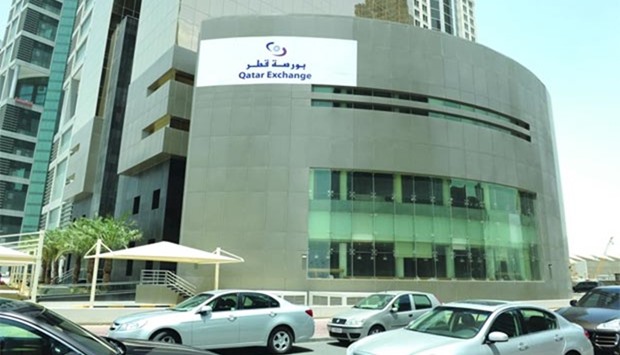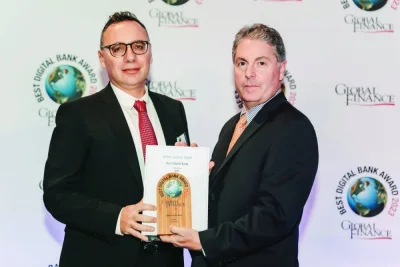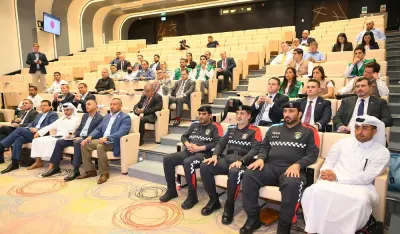The Qatar Stock Exchange (QSE) brought out the best performance in the world in 2018 with about 20% returns, a far higher than that offered in the neighbourhood; denting the hopes of the Saudi-led quartet that imposed trade and economic blockade on Doha.
The consumer goods, telecom, industrials and transport sectors were seen out-performing the market, whose capitalisation gained approximately QR25bn in 2018; although their net profitability had a chequered path.
The year saw the increased exposure of international funds, especially from the US and Europe. A preliminary estimate suggests that the first six months of 2018 has seen more than $1.45bn in foreign net inflows demonstrating the confidence in the outlook for Qatar, particularly amongst foreign investors.
In order to better attract foreign financial powerhouses, Qatar Petroleum (QP) had enhanced the foreign ownership limits (FOLs) in its listed subsidiaries up to 49%. It also saw other entities hike the FOL to 49%.
Accordingly, so far, the Qatar Central Securities Depositary has approved enhancing FOLs in Industries Qatar, Gulf International Services, Mesaieed Petrochemical Holding, Qatar Electricity and Water (QP subsidiaries), Qatar Islamic Bank, Barwa, Woqod, QNB and Qatari Investors Group.
The international financial powerhouses' enhanced exposure has stemmed from their confidence on the strong macro-fundamentals of Qatar, whose credit rating outlook has been upgraded to "stable" from "negative".
Highlighting that the near-to-medium term outlook for Qatari economy benefits from increased oil prices and prudent macroeconomic policies, the International Monetary Fund said: “We anticipate overall real GDP growth of 3.1% in 2019, with still robust non-hydrocarbon growth and recovery in oil and gas production.”
2018 not only witnessed the listing of two exchange traded funds (ETFs) but also saw the advent of another QP subsidiary Qatar Aluminium Manufacturing Company with a big bang, thus taking the total number of constituents to 46.
It was the year when QSE and Shenzhen Stock Exchange and China Merchant Securities explored opportunities, including the mutual listing of Qatari and Chinese ETFs in both markets.
Highlighting that the "positive" performance reflects the strong fundamentals of Qatar’s economy and the investment attractiveness of the QSE and its listed entities; the bourse's chief executive Rashid bin Ali al-Mansoori said "it (QSE) has proven its ability to overcome the challenges of the economic blockade, which brought the best out of Qatar’s capital market, and performance has exceeded expectations with positive results on all levels."
Qatar has a strong and diversified investment climate supported by a package of financial and regulatory laws that make it in the forefront of these markets, he said, adding that the Qatari market is qualified to achieve significant growth rates in this sector, especially after the entry of international investors.
In what could better enable investors take an informed decision, 2018 also saw QSE launch its online ESG (environmental, social and governance) platform, making it one among the first countries in the world to encourage transparency and disclosure by promoting the digitalisation of ESG data.
The year also saw the QSE launch a unified electronic disclosure system project using Extensible Business Reporting Language to strengthen disclosure practices and enhance the efficiency of data dissemination.
The year saw the Qatar Financial Market Authority (QFMA) initiate the process of share split by reducing the nominal value of each scrip to QR1 to increase the prospects for investment in the financial market, expand the shareholders base, attract more small investors, give more choice opportunities for all participants dealing in the QSE, and increase the liquidity and turnover ratio of shares listed on the market.
The market was also witness to the consolidation as Dlala Islamic Brokerage being merged with Dlala Brokerage and a ruling from the QFMA that trading of shares of the companies would not be suspended on the day of the annual general assembly meetings.
The current pace of the domestic economy and the expected robustness, coupled with higher production target of liquefied natural gas are ought to propel the non-oil sectors in a big way.
As 2019 ushers in, expectations are that more, which includes family owned entities, will seek listings, which are expected to give a fillip to the market in terms of liquidity as well as depth and breadth. Such a move has a direct bearing in on the ETFs' performance.
The increased investments in new projects related to expansion of liquefied natural gas and those aimed at ensuring self-sufficiency as well as higher FOLs augur well for the QSE, which is now seeking to diversify investor base, according to al-Mansoori.
The year saw the increased exposure of international funds, especially from the US and Europe. A preliminary estimate suggests that the first six months of 2018 has seen more than $1.45bn in foreign net inflows demonstrating the confidence in the outlook for Qatar, particularly amongst foreign investors.
In order to better attract foreign financial powerhouses, Qatar Petroleum (QP) had enhanced the foreign ownership limits (FOLs) in its listed subsidiaries up to 49%. It also saw other entities hike the FOL to 49%.
Accordingly, so far, the Qatar Central Securities Depositary has approved enhancing FOLs in Industries Qatar, Gulf International Services, Mesaieed Petrochemical Holding, Qatar Electricity and Water (QP subsidiaries), Qatar Islamic Bank, Barwa, Woqod, QNB and Qatari Investors Group.
The international financial powerhouses' enhanced exposure has stemmed from their confidence on the strong macro-fundamentals of Qatar, whose credit rating outlook has been upgraded to "stable" from "negative".
Highlighting that the near-to-medium term outlook for Qatari economy benefits from increased oil prices and prudent macroeconomic policies, the International Monetary Fund said: “We anticipate overall real GDP growth of 3.1% in 2019, with still robust non-hydrocarbon growth and recovery in oil and gas production.”
2018 not only witnessed the listing of two exchange traded funds (ETFs) but also saw the advent of another QP subsidiary Qatar Aluminium Manufacturing Company with a big bang, thus taking the total number of constituents to 46.
It was the year when QSE and Shenzhen Stock Exchange and China Merchant Securities explored opportunities, including the mutual listing of Qatari and Chinese ETFs in both markets.
Highlighting that the "positive" performance reflects the strong fundamentals of Qatar’s economy and the investment attractiveness of the QSE and its listed entities; the bourse's chief executive Rashid bin Ali al-Mansoori said "it (QSE) has proven its ability to overcome the challenges of the economic blockade, which brought the best out of Qatar’s capital market, and performance has exceeded expectations with positive results on all levels."
Qatar has a strong and diversified investment climate supported by a package of financial and regulatory laws that make it in the forefront of these markets, he said, adding that the Qatari market is qualified to achieve significant growth rates in this sector, especially after the entry of international investors.
In what could better enable investors take an informed decision, 2018 also saw QSE launch its online ESG (environmental, social and governance) platform, making it one among the first countries in the world to encourage transparency and disclosure by promoting the digitalisation of ESG data.
The year also saw the QSE launch a unified electronic disclosure system project using Extensible Business Reporting Language to strengthen disclosure practices and enhance the efficiency of data dissemination.
The year saw the Qatar Financial Market Authority (QFMA) initiate the process of share split by reducing the nominal value of each scrip to QR1 to increase the prospects for investment in the financial market, expand the shareholders base, attract more small investors, give more choice opportunities for all participants dealing in the QSE, and increase the liquidity and turnover ratio of shares listed on the market.
The market was also witness to the consolidation as Dlala Islamic Brokerage being merged with Dlala Brokerage and a ruling from the QFMA that trading of shares of the companies would not be suspended on the day of the annual general assembly meetings.
The current pace of the domestic economy and the expected robustness, coupled with higher production target of liquefied natural gas are ought to propel the non-oil sectors in a big way.
As 2019 ushers in, expectations are that more, which includes family owned entities, will seek listings, which are expected to give a fillip to the market in terms of liquidity as well as depth and breadth. Such a move has a direct bearing in on the ETFs' performance.
The increased investments in new projects related to expansion of liquefied natural gas and those aimed at ensuring self-sufficiency as well as higher FOLs augur well for the QSE, which is now seeking to diversify investor base, according to al-Mansoori.




